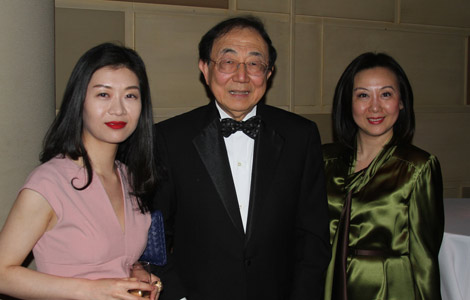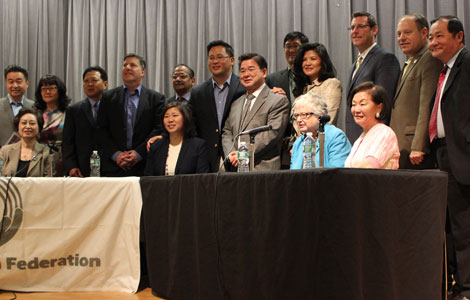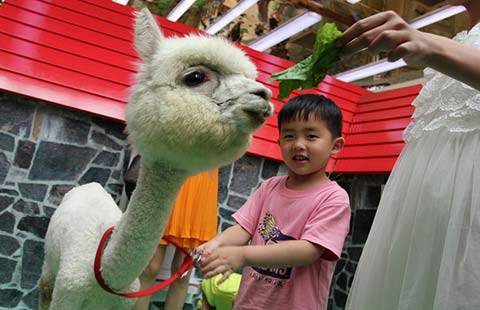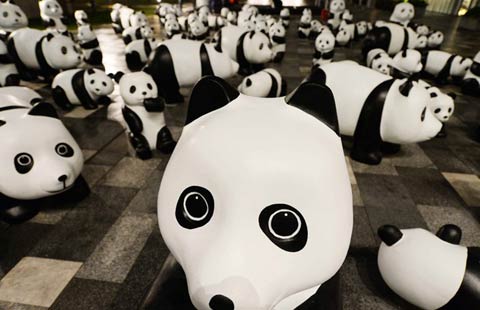Nestea leaves shelves amid competition
Updated: 2014-06-03 07:11
By Wang Zhuoqiong (China Daily USA)
|
||||||||
Nestle's struggles illustratehighly localizedmarket
It's a steep challenge for Western beverage producers to sell tea in China.
The exit of Nestea, an iced tea beverage from the world's largest food and beverage company Nestle SA, shows the challenges faced by international food and beverage companies trying to compete in a highly localized category.
Nestle and The Coca-Cola Co set up a joint venture 13 years ago to introduce Nestea to China. In May, they abandoned the effort, and Nestea vanished from store shelves.
The Westernized tea refreshment product had some good days. In 2008, Nestea's market share was about 2.3 percent. But it dropped to 1.9 percent in 2010, according to Euromonitor International.
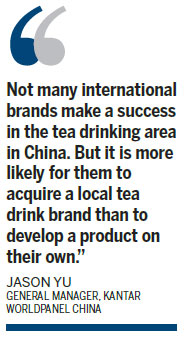
Tea beverage products from two major players - Taiwan-based Uni-President Enterprises Corp and Master Kong from Tingyi (Cayman Islands) Holding Corp - take up almost 40 percent of the market.
Jason Yu, general manager of Kantar Worldpanel China, said Uni-President, Master Kong and Hangzhou Wahaha Group Co Ltd have the strongest penetration in the tea beverage sector, despite the fast growth in the herbal tea sector in recent years. He said that some international beverage brands had failed to find a place in China because of the intensity of the competition.
"If a brand can't stay in the top five, it is hard to find a place anymore," he said.
"Not many international brands make a success in the tea drinking area in China," said Yu. "But it is more likely for them to acquire a local tea drink brand than to develop a product on their own. Chinese consumers feel close to local brands when it comes to tea or other traditional Chinese products."
According to Kantar Worldpanel, sales of fast moving consumer goods rose 6.1 percent year-on-year in the 12 months ended March 21.
The growth rate suggests that Chinese consumers are becoming more selective about daily purchases, with overall purchase volume stagnant.
wangzhuoqiong@chinadaily.com.cn
(China Daily USA 06/03/2014 page14)

 Taliban prisoner swap stirs debate in US
Taliban prisoner swap stirs debate in US
 The world in photos: May 26-June 1
The world in photos: May 26-June 1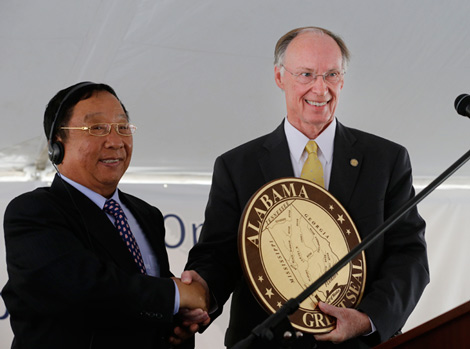
 Alabama County looks to GD Copper for more jobs
Alabama County looks to GD Copper for more jobs
 Minnesota, Mall of America want Chinese tourists
Minnesota, Mall of America want Chinese tourists
 Halle Berry named the Global Icon at Huading Film Awards
Halle Berry named the Global Icon at Huading Film Awards
 Across America
Across America
 Six awarded McDonald's scholarships
Six awarded McDonald's scholarships
 Ma Lin wins Ima Hogg Concerto Competition
Ma Lin wins Ima Hogg Concerto Competition
Most Viewed
Editor's Picks

|

|

|

|

|

|
Today's Top News
NBC censors Snowden interview
Hagel speech reflects US hypocrisy
US being led a merry chase in eastern Asia
US' containment fantasy
This Titanic will be a tourist attraction
Rapid-fire questions turn up heat on Hagel
Abe, Hagel's accusations rejected
Comfort women shrine dedicated
US Weekly

|

|
